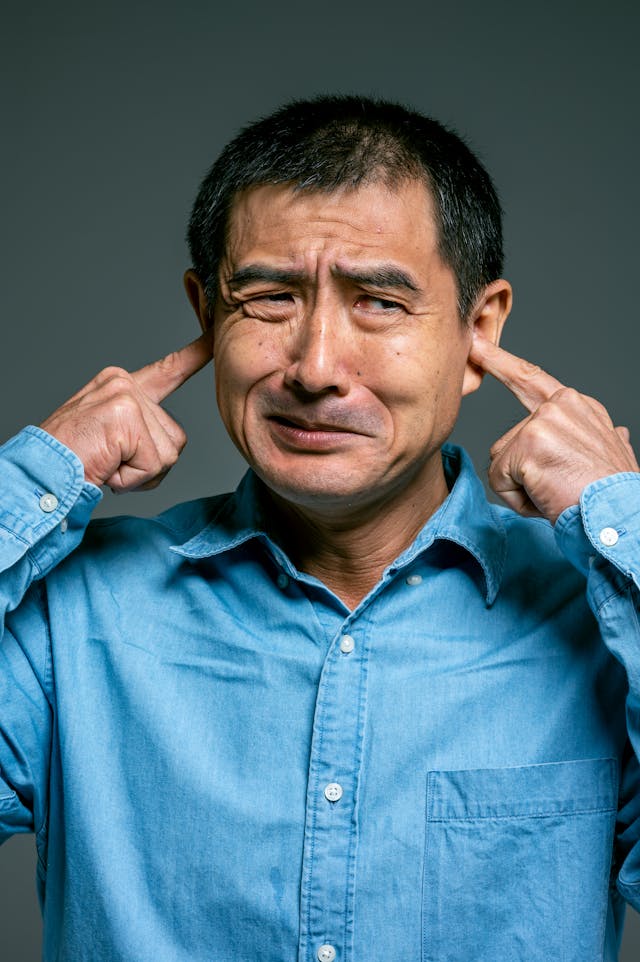 How are CBT and CRT used in Tinnitus management and treatment? Tinnitus, often described as the persistent ringing, buzzing, or humming in the ears, can be a relentless companion, affecting not only your hearing but your emotional and psychological well-being. The good news is that there are powerful tools in the form of Cognitive Behavioral Therapy (CBT) and Cognitive Retraining Therapy (CRT) that can significantly enhance your ability to manage tinnitus. In this comprehensive guide, we’ll explore the transformative potential of these cognitive approaches and how they can empower you to regain control over your tinnitus.
How are CBT and CRT used in Tinnitus management and treatment? Tinnitus, often described as the persistent ringing, buzzing, or humming in the ears, can be a relentless companion, affecting not only your hearing but your emotional and psychological well-being. The good news is that there are powerful tools in the form of Cognitive Behavioral Therapy (CBT) and Cognitive Retraining Therapy (CRT) that can significantly enhance your ability to manage tinnitus. In this comprehensive guide, we’ll explore the transformative potential of these cognitive approaches and how they can empower you to regain control over your tinnitus.
CBT and CRT in Tinnitus Management: The Multifaceted Nature of Tinnitus
Tinnitus is a complex condition that can have a profound impact on various aspects of your life. Beyond the auditory disturbance it creates, tinnitus often triggers emotional responses such as anxiety, frustration, and even depression. Additionally, the continuous presence of sound can disrupt your ability to concentrate, relax, or enjoy peace and quiet.
The Cognitive Approach: CBT
Cognitive Behavioral Therapy (CBT) is a well-established therapeutic approach that targets the negative thought patterns and behaviors associated with tinnitus. It provides a structured framework for individuals to better understand and cope with their condition.
Identifying Negative Thought Patterns
In CBT sessions, the therapist works with you to identify negative thought patterns linked to tinnitus. These patterns often involve catastrophizing, where individuals believe the worst possible outcomes related to their tinnitus, or rumination, where they continually dwell on the sound.
Challenging and Restructuring Thoughts
Once identified, these negative thought patterns are systematically challenged and restructured through CBT techniques. You learn to replace anxious or pessimistic thoughts with more balanced and realistic ones. This process gradually reduces the emotional distress associated with tinnitus, providing a newfound sense of control.
Behavioral Strategies
CBT for tinnitus can also incorporate various behavioral strategies. These may include relaxation exercises, mindfulness practices, and stress-reduction techniques. These holistic approaches not only alleviate tinnitus-related distress but also enhance overall mental well-being.
The Cognitive Approach: CRT
Cognitive Retraining Therapy (CRT) takes a unique cognitive approach by focusing on retraining your brain’s perception of sound. It recognizes that tinnitus often arises from the brain’s response to the condition rather than just the auditory input.
Understanding Auditory Habituation
CRT begins by identifying and understanding auditory habituations—automatic responses of the brain to persistent sounds. For individuals with tinnitus, these habituations can contribute to heightened emotional responses, such as anxiety or frustration.
Retraining Auditory Perception
With the guidance of a CRT specialist, the therapy aims to retrain your brain’s perception of auditory stimuli. This process involves desensitizing your brain to the tinnitus sounds, shifting your response from distress to acceptance.
Customized Treatment Plans
CRT recognizes that each tinnitus experience is unique. Therefore, personalized treatment plans are crafted to address your specific needs and challenges, ensuring that you receive a tailored approach to your journey toward tinnitus management.
Why Stephen Geller Katz, LCSW-R?
Choosing the right specialist for CBT and CRT is essential to your success in managing tinnitus effectively. Stephen Geller Katz, LCSW-R, is a highly experienced tinnitus treatment specialist with over 20 years of experience with tinnitus, Misophonia, and other sound related disorders. With a deep understanding of both cognitive approaches, he is committed to guiding you toward relief and empowerment. Read Dr. Katz’s Bio here.

CBT and CRT in Tinnitus Management: Conclusion
In conclusion, CBT and CRT offer valuable tools for managing the challenges associated with tinnitus. By addressing negative thought patterns, improving coping mechanisms, and retraining the brain to focus on other sounds, these therapies can significantly enhance the quality of life for individuals living with tinnitus. While there are different views regarding if tinnitus can be cured, CBT and CRT can empower individuals to better manage their symptoms and regain a sense of control over their lives. If you are struggling with tinnitus, consider exploring these therapeutic approaches as a potential path toward improved well-being.
Don’t let tinnitus continue to overshadow your life. With Cognitive Behavioral Therapy and Cognitive Retraining Therapy from Stephen Geller Katz, you can find relief, regain control, and live a more peaceful life.
Contact Information
Tinnitus Cognitive Center™
Stephen Geller Katz, LCSW
646-213-2321
All sessions are conducted online
Dr. Katz speaks 5 languages
